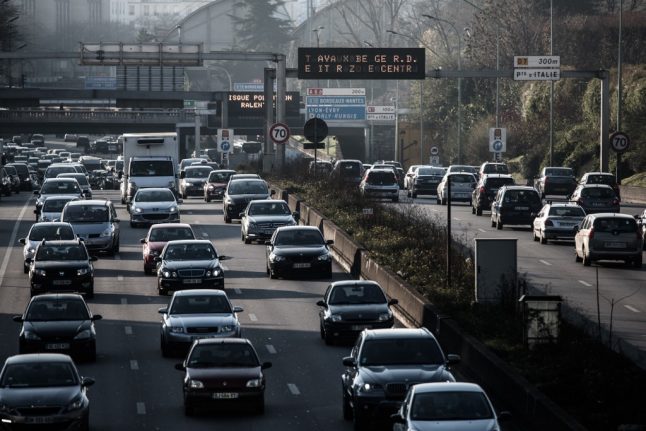A total of 1.7 million people had booked train tickets over Saturday, December 21st and Sunday 22nd, one of the busiest weekends of the year as people across France prepared to go and visit family and friends for the holidays.
But with no end in the sight to the mass transportation strikes gripping the country – and the idea of a 'Christmas truce' ruled out by unions – rail operator SNCF is faced with informing half of those people that they cannot travel.
The company is running just 50 percent of its normal TGV services, although the budget Ouigo services will largely be running as normal.
So many thousands of people will be faced with a choice of either cancelling their trip or going by car.
The weekend had been predicted to be a busy one on the roads even before the strikes started, with French traffic organisation Bison futé warning motorists to expect heavy traffic.
Bison futé has published a traffic warning for heavy traffic on Friday night in the greater Paris area only.
Saturday is predicted to be the big day on the roads, with the whole country coloured orange meaning that driving conditions will be 'difficult'.
Traffic is predicted to be heaviest in the morning as people set off to visit family and friends over the holiday period.
READ ALSO Will any French trains be running over the Christmas holidays?

Map: Bison futé
Anyone who doesn't own their own car might be considering hiring one, be if so it would be wise to do it quickly as many car hire firms are unsurprisingly reporting high demand.
Europcar told French TV channel BFM that they were seeing 30 higher demand than normal and about 85 percent of their fleet was already booked out by Wednesday.
“We've seen twice as many requests in some regions,” mainly Paris and southwest France, said Robert Ostermann, France director for Europcar.
Taxi companies in Paris had already stopped taking Friday reservations early this week as many Metro lines remain shut, while Twitter is awash with irate Uber users forced to pay two to three times normal rates.
The budget bus service FlixBus is also reporting high demand along with ride sharing apps like BlaBlaCar.
In an attempt to provide some extra transport services, the French government on Thursday published a decree temporarily allowing bus drivers to driver longer than their normal hours.
The measures do not apply to school buses or city public transport, but will apply to long-distance coach services.
Flixbus and BlaBlaCar's bus operator BlaBlaBus have reported that demand for tickets has doubled on their services since the strikes began on December 5th.



 Please whitelist us to continue reading.
Please whitelist us to continue reading.
Member comments